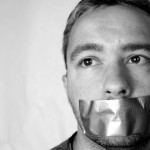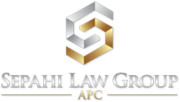 The First Amendment prohibits government regulation of speech, even under circumstances where the speech is unpopular or when the speech is critical of political leaders. However, there are some limitations to the general rule that the government cannot interfere with the right to free speech. The First Amendment is also limited in that it applies only to government interference and prohibits only federal, state and local governments from infringing on speech. Private companies do not have to comply with the requirements of the First Amendment.
The First Amendment prohibits government regulation of speech, even under circumstances where the speech is unpopular or when the speech is critical of political leaders. However, there are some limitations to the general rule that the government cannot interfere with the right to free speech. The First Amendment is also limited in that it applies only to government interference and prohibits only federal, state and local governments from infringing on speech. Private companies do not have to comply with the requirements of the First Amendment.
Understanding when the First Amendment applies is important because if you face persecution or unjust treatment because of a government attempt to silence you, you may make a legal claim to protect your Constitutional rights. However, if an employer fires someone because of unpopular speech or a contrary opinion, the First Amendment generally will not protect the employee.
Sepahi Law Group APC knows the ins-and-outs of First Amendment cases, which can be complicated because these claims are often federal civil rights cases. Our civil rights litigation attorneys can also advise you on situations when a private employer or company may have violated civil rights laws even if the employer is not specifically bound to comply with the First Amendment. Call today to speak with a member of our legal team and to learn more.
The First Amendment and Protected Speech
The First Amendment protects you from almost all government restraint on speech, with limited exceptions that exist in cases where a countervailing public interest trumps the right to be free to say what you wish.
For example, while the government cannot generally regulate speech, it can regulate speech that is intended to incite violence or that would be dangerous. You cannot, for example, yell “Fire!” in a crowded theatre. You can also run afoul of the law if you conspire to commit a crime or engage in speech that leads to illegal activity.
Other restrictions on speech that exist include laws on defamation and libel. These laws ensure that public figure and private individuals can take legal action to recover compensation if someone says something untrue or inappropriate that harms their reputation. Different standard exists for when slanderous speech can give rise to a cause of action by either a public official or by a private person.
While the ability of the government to restrict speech is thus very limited, private companies have no obligation to respect free speech. This means that your employer can fire you, refuse to hire you or terminate you on the basis of something you said. This is true as long as the speech was not protected by other laws. For example, your employer could not fire you for saying you were a Christina or that you believed in God because this could violate the Title VII protections against religious discrimination.
For more information or for help with a First Amendment case in San Diego, call Sepahi Law Group APC today.

